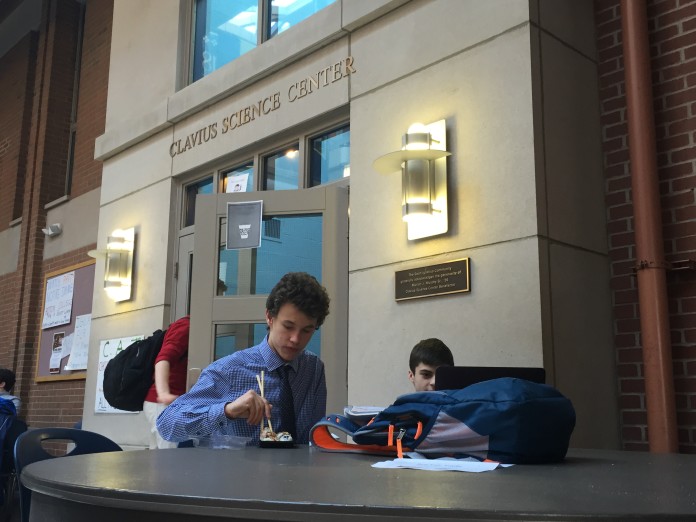by: Andrew Benisek ’17
Every year, hundreds of Saint Ignatius graduates plunge themselves into a semester of rigorous engineering courses at their respective colleges. Why, then, does St. Ignatius not offer any prerequisite courses in engineering?
As it turns out, the answer to the question is not as cut and dry as you may think. It all starts with flaws of the previous science curriculum. Before the class of 2018, biology was not taught until sophomore year. As a result, chemistry was pushed to junior year, and physics to senior year. With this format, there was no room for electives without taking two classes in one year. Now that the administration has moved the classes forward a year, new opportunities have opened up for electives within the science department.
Unfortunately for those interested in engineering, a pre-engineering class is not likely in the near future. According to Dean of Teachers Mr. Ptak, “St. Ignatius High School is a College Prep School, and our science curriculum reflects what colleges want to see. They want the three lab sciences, biology, chemistry, and physics.” In regards to engineering specifically, he said, “The lab sciences we require fit well into engineering disciplines. If you are interested in biomedical engineering you will need a biology background. If you are interested in in chemical engineering you will need chemistry, mechanical requires physics, etc.”
Mr. DeCarlo, an engineer himself and the science department chair, stated his concerns with a high school pre-engineering class. He echoed the comments of Mr. Ptak, stating, “Colleges want to see the biology, chemistry, and physics, and will give credit for those courses. I am not sure that colleges will credit students for a pre-engineering class due to the nature of the course.” In addition, Mr. DeCarlo says, “It is very hard to create a good high school pre-engineering program.” In order to start understanding the concept of engineering, one must have a firm grasp on not only calculus, but statics (properties of materials), chemistry, physics, and business.” This is because in reality, engineers are researching or designing for a business, where there are budgets and constraints, as well as limitations on materials, all of which need to be taken into account. All of this would be very hard to fit into a semester or two semester long high school science course. Mr. DeCarlo said that if Engineering does come to St. Ignatius, it will be down the road.
There is also the issue of how not having an pre-engineering class affects the St. Ignatius Admissions Department (Especially in the context of competing with the St. Edward Pre-Engineering Program). From Mr. DeCarlo’s perspective, St. Ignatius has the same opportunities, but in the form of extracurriculars. While he was not fully sure of what St. Ed’s curriculum entails, he assumes based on the critical principles of engineering that it is more “trial and error based.” Their role is filled here by the Robotics and Science Olympiad clubs. These clubs should be enough to show to colleges an interest in engineering.
So, what should a St. Ignatius student, interested in engineering do instead? Be an ‘and man!’ Get involved, join clubs related to engineering (pre-engineering society, robotics, science olympiad, etc.), get good grades in the science and math classes engineering colleges want to see, and get information on your own. In other words, have a genuine aptitude for engineering. Once colleges see this, and if you’ve done your part to prepare, college engineering courses should be an easy transition to make.






